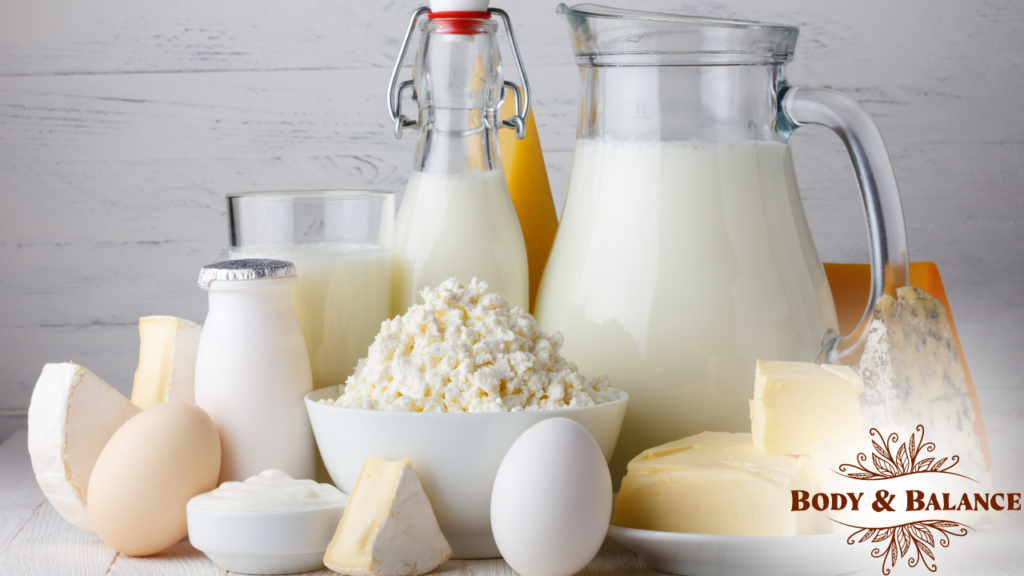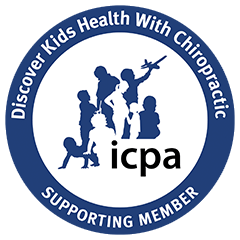The purpose of food is to provide our body with the fuel it needs to do what we require in a day. However, so much of what we consume is pre-packaged and overly processed, leading to a lack of actual nutrition. One of the key factors in living a wellness lifestyle is making wiser dietary decisions. Due to a particular protein found in some milk and dairy products called casein, decreasing dairy may be something for you to consider.
What is Casein?
Milk is made up of fats, vitamins, lactose, and protein. Protein actually makes up 38% of the solid matter in milk and, of that, 20% is whey and 80% is casein. Meaning that almost 1/3 of the protein in milk is casein. For years, many wellness-minded healthcare professionals warned against casein. This particular protein is difficult to digest. It has been suggested that even those who don’t have a digestive disorder or an allergy to milk or dairy products or other foods, could benefit from eating casein-free, or at least reducing their daily intake of dairy.
A1 and A2 Beta-Casein
In the 1990s, a New Zealand-based scientist discovered there are actually two different types of casein: A1 and A2. He found that the A1 casein protein seemed to cause people to experience digestive issues or discomfort. At one time, all cows made A2 casein, the structure of which is more comparable to the milk from goats, sheep, and buffalo as well as human breast milk. Then Northern European cows suffered a spontaneous genetic mutation and began making A1 casein. These genetically mutated cows are sturdier and produce more milk, so they quickly became the major milk producing cow in the world, including the U.S., according to Dr. Steven Gundry, heart surgeon and the author of The Plant Paradox and The Longevity Paradox. It is believed by Dr. Gundry, and others, that the digestion of casein A1 is the source of a variety of health issues.
A1 Casein and Your Health
For every article espousing the dangers of consuming casein A1, there’s one available to refute it. However, there are a few facts that can’t be denied. The original research in 1990 continues jointly with the University of Auckland-based Liggins Institute and AgResearch, a nationally owned research institute supporting New Zealand’s agriculture. They have proven that β-casomorphin-7 (BCM-7) is released by digestion of A1 casein. Several studies have shown that BCM-7 has opioid and cytomodulatory properties and is actually treated by the body as an opioid.
High Amounts of BCM-7
Studies by Dr. Reichelt in Norway and Dr. Cade at the University of Florida, among others, found that urine samples from people with autism, PDD, celiac disease and schizophrenia contained high amounts of the BCM-7. It has been suggested that the amounts of this peptide may also be elevated in other similar disorders. These include chronic fatigue, fibromyalgia and depression based on the reported benefits of a casein-free diet. Other studies have shown a proven connection between milk containing A1 β-casein and post-dairy digestive discomfort and cognitive impairment. A study published in 2016 in the Nutrition Journal concluded that the consumption of milk containing A1 β-casein was associated with poor health outcomes. These include increased gastrointestinal inflammation, worsening of post-dairy digestive discomfort, and decreased cognitive processing speed and accuracy. The results of the study showed that these symptoms were all avoided by drinking milk that contained only the A2 β-casein.
Dr. Steven Gundry has several examples of patients responding favorably to dairy products containing only A2 casein. Many patients believed that they were lactose intolerant, anecdotal evidence shows that it was merely the A1 casein. In his book, The Plant Paradox, he shares the story of a patient that was convinced by a friend to eat yogurt that wasn’t A2, and the symptoms of her rheumatoid arthritis returned that evening.
The Problems with Milk
While A1 casein is clearly a problem, it’s not the sole issue with milk. A study out of Indiana University, published in the Indiana Journal of Endocrinology and Metabolism, showed an association between dairy intake and early onset of puberty. Another study published in the Journal of Nutrition in 2012 showed a direct correlation between increased consumption of skim milk, whey and casein and an increased BMI in teens. Yet, none of the study’s funded by the dairy industry found any concern.
The head of the Obesity Prevention Center at Boston Children’s Hospital and the chair of Harvard’s nutrition department published an editorial in the journal Pediatrics in 2013 that suggested humans shouldn’t be drinking another animal’s milk. Breast Surgery Chief of California’s Seton Medical Center, Dr. Robert Kradjian, reviewed archives of medical and scientific journals. He found that milk is not the “perfect food” it is reported to be. He found that many childhood disorders were, if not induced, certainly aggravated by an increased intake of dairy products. These include but not limited to allergies, ear and tonsil infections, bedwetting, asthma, intestinal bleeding (lesions), colic and childhood diabetes.
No Dairy Milk Before One
The American Academy of Pediatrics advises parents not to give their children dairy milk before their first birthday. Dr. Frank Oski is the former Chief of Pediatrics at Johns Hopkins University Hospital and the author of Don’t Drink Your Milk. He believes that milk should not be given to children to drink, ever. Since milk has been associated with various manifestations of food allergies and other issues, he believes it would be prudent to recommend that milk not be consumed at all.
What To Avoid
There are many foods that fall under the category of dairy and should be avoided. These include, but are not limited to:
- milk
- cream/Half & Half
- yogurt
- butter
- sour cream
- cheese
- white or milk chocolate
- ice cream
- ice milk or sherbet
- creamed soups or vegetables
- soup bases
- puddings
- custard and whey
Other foods may contain casein because it has been added as a “bonding agent.” These foods include but are not limited to:
- margarine
- dairy-free cheese
- tuna fish
- semi- sweet chocolate
- hot dogs, sausages and other deli or lunch meats.
Many stores are beginning to offer A2 products, which don’t have the A1 casein and are much healthier. Go to www.a2milk.com/find and find a grocery store near you that makes these preferable products available.
Concerned About Calcium
When deciding to decrease dairy products, many parents’ primary concern is calcium. According to researchers from Washington University in St. Louis, food is the best source of calcium. For example, a cup of spinach contains more calcium than an 8-ounce glass of milk. Other great sources of calcium are broccoli, kale, romaine lettuce, cabbage and oranges. The fact is that milk or dairy products shouldn’t be the primary source of calcium in a wellness diet.
In Summary
Consuming dairy products is a matter of choice. With the potential for allergic reactions, the high fat content, and the potential problems with A1 casein, it’s good to know that there are other choices. Be sure to ask your family wellness chiropractor any questions regarding how to decrease dairy in your diet.
To learn more about the benefits of chiropractic care. Click to schedule a complimentary consultation with Body & Balance’s practitioners today.
RESOURCES: DR. CLAUDIA ANRIG-THE WELLNESS FAMILY



